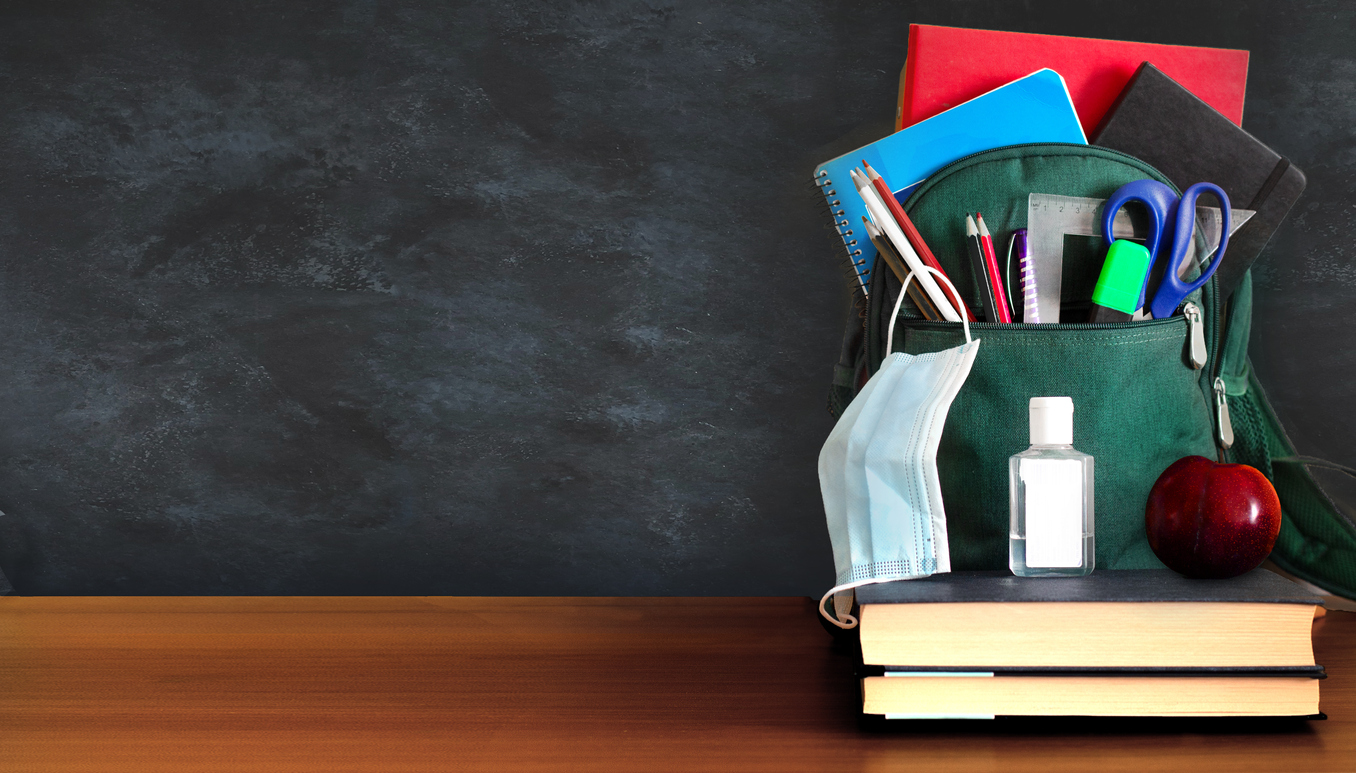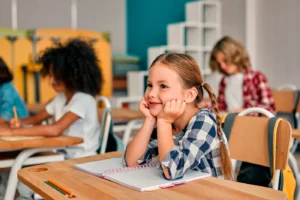4 big changes in education as a result of COVID-19
Key takeaways:
- Virtual school has had a profound effect on academic achievement
- COVID-19 may have permanently changed how we educate students
- Students who lacked the technology and reliable Wi-Fi fell further behind
- Students with learning differences faced even more challenges
- The COVID slide contributed to substantial learning losses
- Children and teens faced rising rates of stress, anxiety, and depression due to fear, isolation, and uncertainty
There is no question that COVID-19 has been one of the most disruptive experiences in recent history, especially when it comes to education. School closures in early 2020 led to a massive shift to remote learning. The virtual model has had an impact on student learning and academic achievement. The situation has also affected children emotionally and mentally.
We explore four of the biggest changes we’ve seen in the last year and the impact of COVID-19 on learning. We also discuss summer education programs that can help your child catch up and prepare for the next school year, including the FLEX Summer Literacy Program.
Change 1: The rise of online learning
Has COVID-19 permanently changed the way we educate children? We don’t know yet, but possibly. Take a look at what happened when it comes to homeschooling. It has been gaining popularity for a long time. There were about 2.5 million K-12 homeschooled students (3%-4%) in spring 2019.
When schools shut down, many parents pulled their children out of “virtual school” and decided to homeschool instead. As a result, the number of homeschooled kids doubled to 4.5-5 million students by March 2021, according to the National Home Education Research Institute (NHERI).
The virtual learning environment offered by most public and private schools is very different from homeschooling. It requires students to log on to a computer several times a day to receive lessons or further instruction from teachers. It also requires parents to act as teachers and technical support, usually while holding down a full-time job.
By Labor Day 2020, 62% of US students were learning virtually. In March 2021, around 1 in 4 public school students had not had any in-person classes.
Many students – even formally straight-A students – checked out of the virtual learning environment due to frustration. School systems lost many students when they stopped logging onto the computer. Others have trouble keeping up because they don’t have a computer, reliable Wi-Fi, or support at home. Students with learning differences like dyslexia and ADHD struggled even more.
All of these circumstances led to the rise of the COVID slide.
Change 2: Substantial learning losses
Teachers and education experts have long been aware of something called the summer slide. Several studies have shown that students often lose some of their gains in reading and math over summer break. The losses can add up to around two weeks – two months in these subjects.
The school closures and subsequent virtual learning model have also led to learning losses. The so-called COVID slide can be even more severe than the summer slide. A study by the Northwest Evaluation Association (NWEA) in April 2020 estimated that some students could lose up to 70% of reading progress and up to 50% of math progress. This is huge, especially for children with learning differences.
The summer slide and COVID slide could combine this summer, which means many students may not be prepared for the next grade.
Change 3: Changing guidelines for in-person school
Students who did return to in-person learning, either in the fall or at a later date, faced challenges, too. Guidelines from the Centers for Disease Control (CDC) and state/local governments put restrictions on student behavior. Most students still have to wear masks all day and stay 6 feet away from their classmates. Desks were spaced out in classrooms, with some schools going so far as to put up plexiglass around each desk.
This has created challenges for students and teachers. Social distancing (and plexiglass) can discourage casual conversation. Group activities have been curtailed, including sports and recess in some cases.
These changes have led to consequences that have little to do with academics. We’re talking about the emotional and mental impacts of COVID.
Change 4: The growing worry about mental health
COVID-19 has impacted children and teens in countless ways, but one area of concern stands out above the others. Mental health.
“The stress, fear, grief, isolation, and uncertainty created by COVID-19 pandemic can wear anyone down, but many children and teens have had an especially tough time coping emotionally,” according to HealthyChildren.org.
As a result, young children might be slower to reach developmental milestones, including potty training. They may also experience social anxiety and show signs of aggression and frustration. The rates of anxiety and depression in older kids and teens has been rising, too. They might lose interest in things they used to love, have trouble sleeping, struggle with school work, and have problems with concentrating and critical thinking.
Help your child avoid learning losses
If you’re worried about your child falling behind, our FLEX Summer Program may be the answer. This program is designed for children and teens who need some extra support to catch up or prepare for the next grade. It’s also helpful if you want your child to maintain academic momentum over the summer.
The FLEX Program offers practice in:
- Math
- Writing
- Reading comprehension
- Reading fluency
The big benefit of this program is that it can be tailored to your child’s academic goals and schedule. We can even work around summer camps and family vacations.
For kids with learning differences such as dyslexia or ADHD, or those who need more extensive help in reading and/or math, the S.M.A.R.T. Summer Literacy Program may be the better choice.
Find summer learning support for your child
If your child needs extra help, The Learning Lab is here. We offer in-person tutoring and virtual learning tools to help children avoid learning loss or catch up if they’ve fallen behind. Along with our FLEX and S.M.A.R.T. programs, we run the Homework Lab, academic software, and I3 Lab during the school year to offer additional support for smart, but struggling learners. No matter your child’s needs, you can find help here in South Florida.
The Learning Lab recently expanded into our Davie location to provide better learning support to families throughout Davie, Cooper City, Plantation, and Fort Lauderdale.
Contact ustoday for more information.





